What happens when a Delhi professor is given the rare opportunity to travel with the Pakistan army along the LoC?
Find out in this fascinating excerpt from Happymon Jacob's book, The Line of Control: Travelling With The Indian And Pakistani Armies.
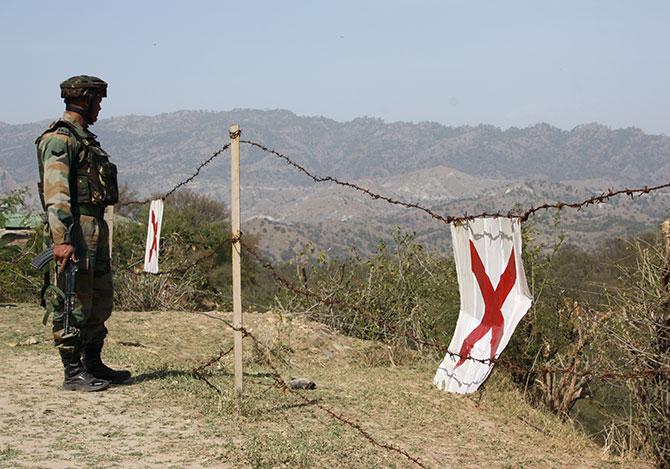
'That's your notorious jungle post.' Brigadier Noor was pointing at an Indian Army post perched on the upper reaches of the Pir Panjal mountain range, not too far from the Indian town of Poonch in J&K.
'Notorious' because according to him, the men in the post, hidden away behind the dense foliage, fired at Pakistani soldiers and villages at will, causing death and destruction.
'Why would they do that?' I retorted.
'Marzi hai (because they feel like it),' Noor responded, adding, 'It's a free-for-all on your side, no one cares.'
Noor was not wrong. On the LoC, troops often fire for the heck of it. On the IB outside J&K, they never fire except during wars. What he didn't say, however, was that both sides do so.
The 'at will' firing has diverse origins: Pure boredom and factors arising out of a military culture of establishing one's moral ascendency, among others.
Sometimes the reasons may be purely 'personal'. Retired Pakistani general Sikander Afzal once told me that 'monotony-breaking will also include shooting holes in clothes left for drying by the troops on the other side of the border. There are few avenues for entertainment.' And sometimes the soldiers fire for pure fun, with no intention to harm the other side.
Then there is the more serious firing, to establish one's moral ascendency.
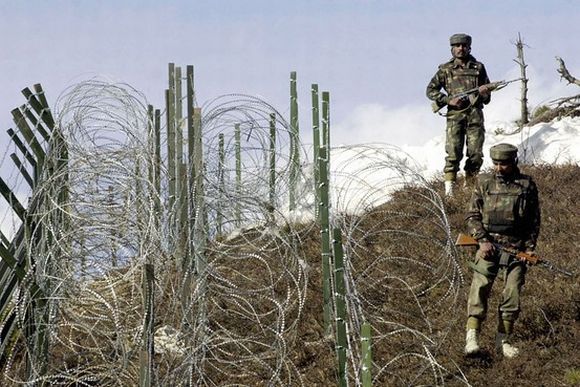
Former corps commander in Srinagar General Ata Hasnain says that 'on the LoC, there is a concept called moral ascendancy -- 'I am the better army' and 'I dominate you by my morale, training, capability'. It is a macho game that adversaries in eyeball-to-eyeball contact indulge in.'
Noor's phrase -- 'your notorious jungle post' -- did invoke an assortment of emotions in me, temporarily testing my sense of loyalty to India as I couldn't help harbouring an instinctive feeling of attachment, friendliness and no ill will towards the Pakistani side.
Here I was, travelling with the enemy forces. I did break bread with them, slept in their guest room, travelled in their jeeps. Their armed soldiers surrounded me, night and day, ensuring that no harm came to me from anywhere, including the 'enemy forces' -- the Indian troops.
'Are you ready for a once-in-a-lifetime adventure? Are you the adventurous type?' said Noor. A moment ago, he had asked his driver and gunman to sit at the back and gestured me to sit next to him after occupying the driver's seat himself. Would I have been where I was on that day if I were not adventurous?
I was being driven along the Pakistani side of the LoC by the brigade commander whose men manned the line, fired at the Indians and took cover when the Indians returned fire. The Indian posts were a little more than a kilometre away, from where Indian Army soldiers would observe enemy movement through the peepholes. Perhaps they were looking for a good target and an appropriate time to fire.
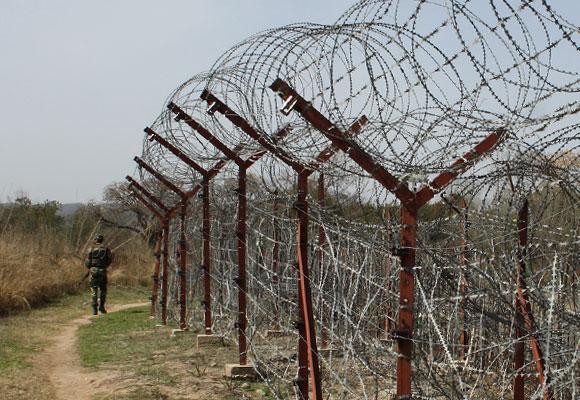
Noor knows his trade. A tall, lean man with sharp features, he speaks little and when he does his words make an impact.
That's the kind of men you will find commanding the forward brigades and units on the LoC on either side: The no-nonsense type, the type who would not think twice when orders came down to shoot, to kill or to be killed. The battle hardened, follow-the-orders-without-questions type.
We were on our way to the Tatrinote-Chakan Da Bagh trading point. The region falls under the Battal sector (which the Pakistan army calls a 'hot' area due to the frequent firing taking place there).
For the Pakistani side it was one of the most dangerous spots: An area where Indians exercised domination through observation and firing, and the Pakistani side had to be careful due to the presence of the Pakistani civilian population living bang on the LoC.
'It will be a pity if you were to be shot by your country's army,' Noor said half-seriously, explaining why he was taking the longer route instead of the much better paved and shorter route.
I turned to Noor in the driver's seat to gauge the seriousness of his statement and thought to myself that ducking 'friendly fire' while on 'enemy territory' was a sensible suggestion.
I promptly agreed, not that I had much of a choice. Besides the famed 'jungle post' there were several Indian posts, including KG Top, that could target our vehicle.

Frankly, I took his words lightly at first, but he seemed serious and recollected how a patrol party was fired at a few days ago and how the village in front of us has been under constant fire. 'Let's hope there will be no firing today.' His words weren't fully reassuring. 'This is what life on the line looks like. I thought it was important you got a taste of the tension around here.'
'What if they (the Indians) fire?' I was worried. He said his men were alert in the Pakistani posts, which would be noticed by the Indians, and there was therefore a likelihood of calm. It sounded like he was taking a huge chance.
'But if they fire, we will retaliate' -- nor did that promise help.
Before we started our journey, Noor had left his commander's vehicle behind a bridgehead under the cover of trees. He had travelled to Battal village below the Indian posts in an unmarked jeep without the brigadier insignia.
I noticed it right away. 'Why has he left his official vehicle behind? Does he think he would be targeted?' I asked my liaison officer. He just smiled and said nothing.
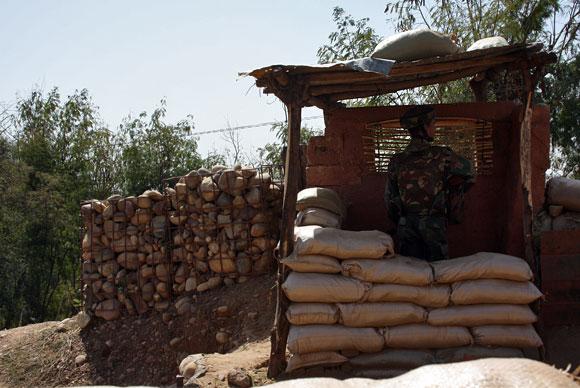
Perhaps Noor didn't want the Indian Army to identify him and take shots at a high-value target. Not that soldiers normally shoot at high-value targets on either side. In fact, there is an unwritten understanding among the forces on both sides that they will not shoot at helicopters -- helicopters often carry senior officers. But why take a chance, he must have thought.
Having left his official vehicle behind, Noor was going about like an unidentified Pakistan army officer along with soldiers carrying personal weapons, and 'someone' in civilian attire.
I pictured the Indian soldiers following our progress through their binoculars. Did it cross their mind to take a shot at the Pakistan patrol party? After all, they were in a position of strength there: They could shoot and get away with it. Moreover, they had no idea Noor was a brigadier, nor did they know that the 'someone' in civilian attire was an Indian.
We drove past the jungle post and several other posts along the ridge overlooking the road, slowly, carefully and watching intently to see if there was any activity on the Indian side. Across the elevated ridge, Pakistani posts were facing the Indian posts.
Given what Noor had told me I knew that the two sides would be carefully observing each other's movements and would be ready to respond in case the need arose. They were in each other's firing range and did exchange fire during stand-offs.
On the night of December 25, 2017, less than a week after I returned from Pakistan, a special forces unit of the Indian Army crossed the LoC in the Poonch sector and killed three Pakistani soldiers, avenging Indian casualties.
The area of operation was close to where Noor had warned of possible 'enemy fire'. The Battal sector has a special place in my heart, and it makes me sad whenever I hear of deaths and injuries in the area.
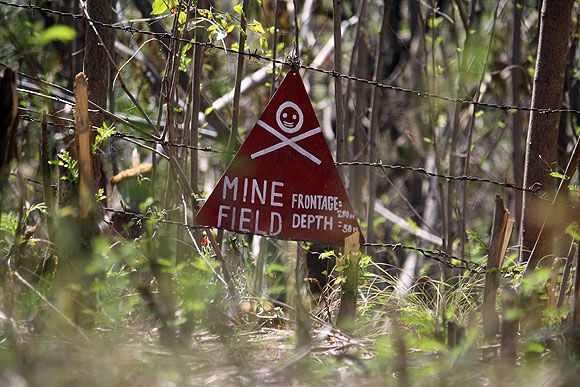
In this shooting war between Indian and Pakistani armed forces, civilians are the hapless victims. They get shot at, killed, their livestock injured/killed, houses destroyed and harvests damaged. In the first three months of 2018 alone, around 25 Pakistani civilians lost their lives as did 13 Indian civilians.
I was seated on the terrace of the village sarpanch's house to take in the afternoon warmth of the December sun. The house was within the firing range of Indian and Pakistani troops.
The village was located on the mountain slope right under the nose of the Indian posts and was visible to the Pakistani posts on the other side.
The freshly painted houses were riddled with bullet marks, and the terrace walls had several huge holes drilled in by Indian shells.
Most of the village had gathered to talk to the man from the enemy side -- some to complain and vent, some to request for peace and some to just meet me and Brigadier Noor. There was a sense of urgency in the air, and a feeling of being embattled.
'Please tell your army when you go back that they should have a war with the Pakistan army and end the matter once and for all. We don't want this low-intensity war happening on a daily basis. Our cattle get killed, our people are crippled, our kids can't go to school. How long will we continue with this subhuman existence?' That was a desperate plea, and I didn't quite know what to say.
Life on the LoC is like living in front of a firing squad that is in no hurry -- a firing squad that has orders to shoot at you, but it decides against immediately carrying out those orders.
It takes its time, patiently observes you, enjoys your fear, occasionally sprays bullets in the vicinity and turns the other way when you run for cover. When you settle down, they fire at you again.
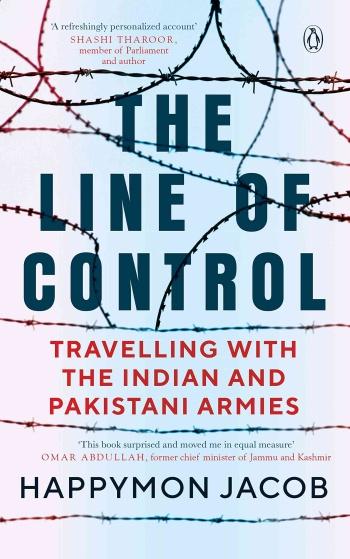
Some of your friends die, some get hurt, but you have no choice but to continue to live before the firing squad, exposed to their guns.
You are vulnerable to their whims, fancies and mood swings. If that's not brutal enough, imagine two rival firing squads on opposite sides and you caught between them furiously firing at each other, for reasons best known to them.
Members of the firing squads change every now and then, and as a result they hardly empathise with your plight. Your idea of peace is like a moody spell of good weather that comes and goes at will, limited to the interregnum between showers of bullets.
Excerpted from The Line of Control: Travelling With The Indian And Pakistani Armies by Happymon Jacob, with the kind permission of the publishers, Penguin Random House India.










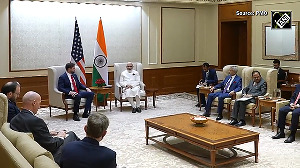
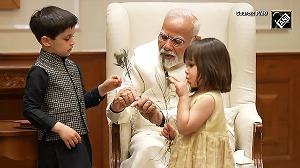
 © 2025
© 2025